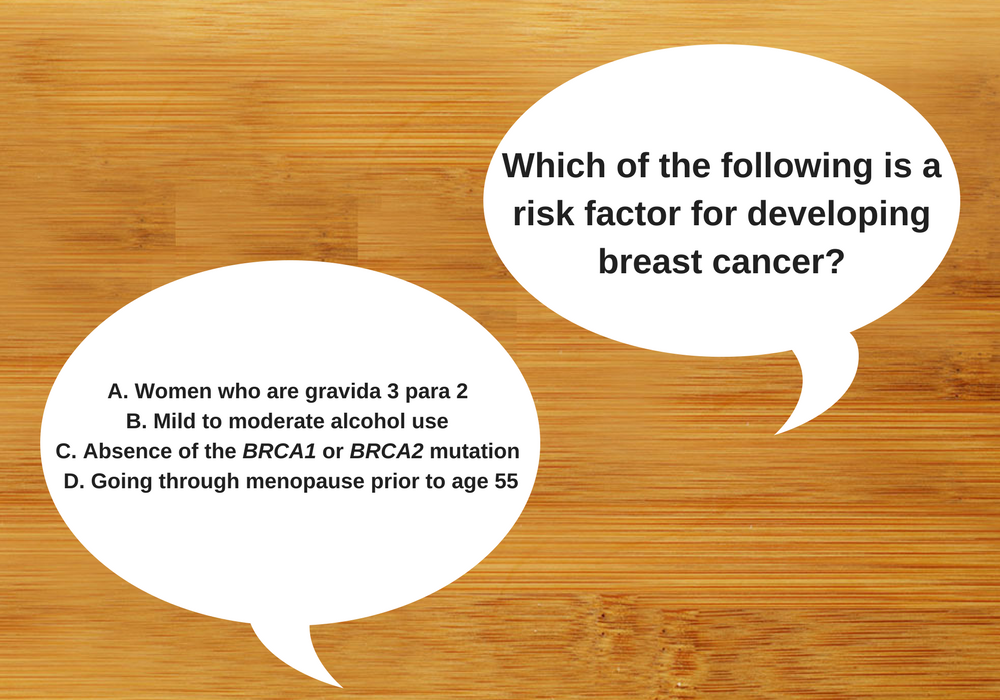Answer
The answer is B: Mild to moderate alcohol use.
According to a 2017 American Society of Clinical Oncology report, even occasional alcohol consumption increases the lifetime risk of developing a number of malignancies, including breast cancer.
A is not a risk factor because women who have not been pregnant over the course of their lifetime carry a greater risk for developing breast cancer than women who have.
C is not a risk factor because the mutations are absent. BRCA1 and BRCA2 mutations are known to increase the risk of breast cancer, and women with familial history of breast cancer or other hereditary risk factors may be interested in testing for the presence of this mutation.
D is not a risk factor because entering menopause prior to age 55 does not increase the risk of breast cancer. However, women who do not enter menopause until later in life (after age 55) have prolonged exposure to estrogen and therefore increases the risk of breast cancer development.
Learn more about breast cancer risk factors.






